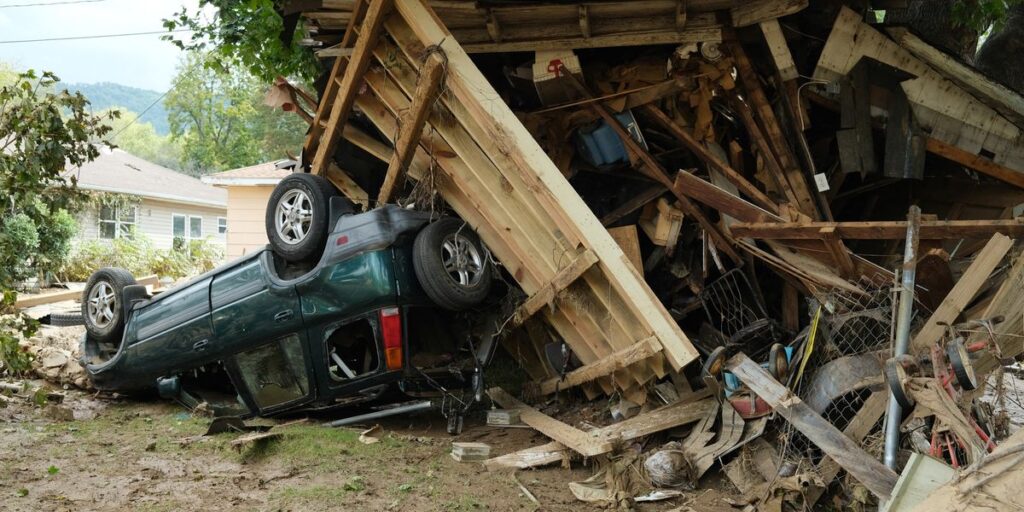FEMA Administrator Deanne Criswell recently addressed the growing concern over misinformation surrounding the federal disaster response to Hurricane Helene, stating that the volume of misleading information is beginning to decrease. Criswell emphasized the agency’s commitment to its mission of assisting affected individuals, despite the distraction posed by false claims proliferated by certain social media influencers and political figures, including former President Donald Trump. She noted that misinformation could hinder the effective execution of FEMA’s responsibilities and reiterated the commitment to aid victims of the hurricane without being sidetracked by unfounded rumors.
The surge of misinformation has been fueled primarily by right-wing politicians and influencers, frequently contradicting established facts about FEMA’s operations. For instance, Rep. Marjorie Taylor Greene (R-Ga.) propagated the conspiracy theory that the U.S. government can control weather patterns, implying that hurricanes are deliberately targeted at Republican areas. Trump also made several false allegations, including claims that the Biden administration is misappropriating FEMA funds for electoral purposes and that relief payments to Hurricane Helene survivors are merely $750. These narratives have raised alarms among both citizens and officials who seek to counteract disinformation.
As Hurricane Milton approached Florida, FEMA prepared for a potential influx of misinformation surrounding its disaster response efforts again. Interestingly, some Republicans began pushing back against the misleading narratives within their party, marking a shift towards unity in combating harmful rhetoric. Florida Representative Carlos Gimenez asserted the absurdity of claims about weather control, urging those who spread such theories to reconsider their stance. Meanwhile, Republicans on the House Appropriations Committee created a fact sheet clarifying that FEMA’s programs for disaster relief and migrant sheltering operate independently, directly refuting Trump’s inaccurate statements about their funding interconnection.
FEMA’s proactive approach to addressing misinformation includes the establishment of a dedicated webpage called “Hurricane Helene: Rumor Response,” which focuses on debunking unverified claims. Similarly, state officials in North Carolina set up their own information resource to combat rumors. FEMA’s officials actively engage in correcting falsehoods during press briefings, with Keith Turi, acting director of FEMA’s Office of Response and Recovery, taking a firm stance against the misleading narrative that survivors are receiving inadequate financial support and that the agency is confiscating personal belongings of those seeking assistance.
President Joe Biden voiced his frustration over the spread of misinformation, particularly calling attention to Trump’s role in disseminating falsehoods and Greene’s absurd weather-related assertion. He stressed the critical need for unity in the face of disaster, emphasizing that during such crises, people should work together as “one United States of America” rather than politicizing assistance efforts. Biden’s appeal highlighted the efforts of volunteers and first responders who risk their lives to support one another and underscored the detrimental impact that misinformation could have on disaster recovery.
By countering misinformation with factual rebuttals and encouraging bipartisan cooperation, FEMA and other stakeholders aim to facilitate effective disaster response and ensure that those in need receive the help they require. Criswell’s assertion that misinformation should not distract from FEMA’s mission underlines the agency’s commitment to clarity and truth in its communications while recognizing the significance of maintaining public trust amidst the tumultuous environment surrounding natural disasters. This ongoing battle against misleading narratives is critical, as misinformation can hinder the necessary partnerships and support systems essential for recovery efforts.

